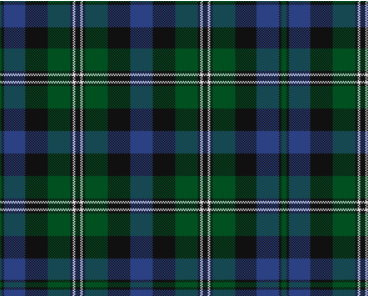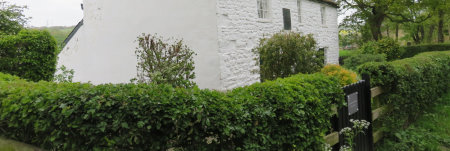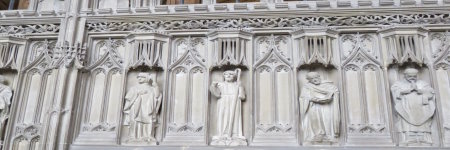Welcome
Welcome to Our Website -PLEASE NOTE THIS WEBSITE IS BEING UPDATED AND NOT YET COMPLETE
Stephenson
About the Sirname
Though STEVENSON and STEPHENSON are found in other provinces of Ireland they are common only to Ulster and in particular in Counties Antrim, Armagh and Down. Steenson, Stinson and Steen are exclusive to Ulster and are most numerous in counties Antrim and Armagh.
St Stephen, the first Christian martyr after Christ was a favourite among the Normads, who made it popular in Britain. In Scotland the name was spelt Steven and so, technically at least, Stephenson is more likely to be English and Stevenson Scottish. However, spellings are notoriously unreliable when trying to distinguish the origins of a particular family. Stevenson is much more common in Ulster.
Steenson and Stinson in Ulster are variants of Stephenson. Around 1900 Stephenson was being used interchangeably with Steenson about Cootehill in County Cavan and
Tandragee and County Armagh; with Steinson near Ballymena in County Antrim; with Stenson around Cootehill; and with Stinson in Blackwaterstown in Armagh and Templepatrick in Antrim. Stevenson has occasionally been used in Ireland as a synonym of Anglo-Norman name FitzStephen.
STEPHENSON: from the Greek "Stepan", meaning "a Crown." Stephen, King of England , and Stephen, King of Hungary , spread the name, but did not and do not bestow any royal title on its inheritors. "S'rioghal Mo Dhream" is the Gaelic motto of the Stephens and Stephenson (son of Stephen) families and means, "My Race is Royal." Both families belong to Clan Alpin, descendants of King Alpin of Scotland, A.D. 787. Genealogists in London trace the Scotch-English Stephensons to an officer of that name in the Army of William the Conquerer, who for services in the Battle of Hastings, was given a grant of land in Scotland, south of Glasgow. The parish and town still bears the name Stephenson.
This medieval surname is a patronymic form of the given name Stephen or Steven. These in turn derive from the pre Christian Ancient Greek word "stephanos", meaning "crown"). Stephen was a popular first name in the Middle Ages, although prior to the Norman Invasion of 1066, it was used only by monks. It was also the name of the first Christian martyr. It recorded in the famous Domesday Book of 1086 in the Latinized form of "Stefanus" . Greek and Hebrew names were given to the children of returning 11th and 12th century "crusaders", and these names, which included "Stephanus", became very popular gradually taking over from the surviving "native" names, many parts of Northern Europe. In Britain early examples of the surname recording include Alice Stevens, also spelt as Stephenes, who was recorded in the Hundred Rolls of the county of Huntingdonshire in 1279, whilst in the following century John Stephenson was a Freeman of York in 1395. George Stephenson (1781 - 1848) is perhaps the most notable bearer of the name, famous for his development of the railway engine, "The Rocket", and for being known as The founder of the Railways. The first recorded spelling of the family name is believed to be that of Adam Stevenson which was dated 1327, in the "Subsidy Rolls" of the county of Essex, during the reign of King Edward 111 of England, known as "The Father of the Navy", 1327 - 1377.
Northern English and Scottish: patronymic from the personal name Stephen
Scottish, English, Dutch, and North German: from the personal name Steven, a vernacular form of Latin Stephanus, Greek Stephanos ‘crown’. This was a popular name throughout Christendom in the Middle Ages, having been borne by the first Christian martyr, stoned to death at Jerusalem three years after the death of Christ. In English the variant spelling Stephen is almost equally common.
The Irish surname Stephenson is patronymic in origin, being one of those surnames based on the first name of a father. In this case the surname is derived from the first name Stephen and simply signifies "son of Stephen". There were two saints with this name; St Stephen, King and Patron of Hungary. The name Stephen is derived from the old Greek word "stephanos", which when translated means "garland" or "Wreath". There were numerous variants on this surname including Stevenson, Steavenson, Steevenson and Stepinson. An early instance this surname occurs in 1327 when one Adam Stevenson is recorded in Essex (Subsidy Rolls). Another instance occurs in Whitby where one John Stephenson is recorded in 1395 ( Yorkshire ).
Though Stephenson and its variants are found in all the provinces of Ireland , it is common only in Ulster, and particularly in counties Antril, Armagh and Down. In this part of Ireland the name usually takes the form of Stevenson. This name has also occasionally been used as the synonym of the Anglo-Norman name Fitzstephen. Evidence of the existence of this surname in the " New World " is substantiated by Tepper's "Passsengers to America " in which one John Stephenson, a butcher from London to Maryland on the thirteenth of January 1775 . One John Stephenson, from Armagh , sailed on the Jupiter, captained by William H. Hutchins, which sailed from Belfast and landed in New York in 1811.
Blazon of Arms Azure; a fleur de lis within two mullets or, in fess between two roses in chief argent. Barbed and seeded of the second, and three arrows in base gold, flight of the third.
Translation: Azure blue symbolizes the planet Venus and denoets Truth and Loyalty
Crest: A rose in the arms
Origin: Ireland
Stephenson Tartan:








